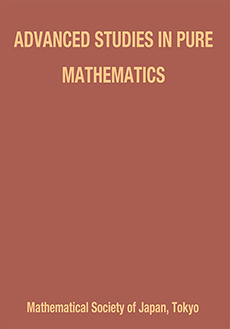Abstract
For the unit disc $\mathbb{D}$ in $\mathbb{C}$, the harmonic Hardy spaces $\mathcal{H}^p$, $1 \le p \lt \infty$, are defined as the set of harmonic functions $h$ on $\mathbb{D}$ satisfying $$ ||h||_{p}^{p} = \sup_{0 \lt r \lt 1} \frac{1}{2\pi} \int_{0}^{2\pi} |h(re^{i\theta})|^p d\theta \lt \infty. $$ The classical Littlewood-Paley inequalities for harmonic functions [3] in $\mathbb{D}$ are as follows: Let $h$ be harmonic on $\mathbb{D}$. Then there exist positive constants $C_1$, $C_2$, independent of $h$, such that
(a) for $1 \lt p \le 2$, $$ ||h||_{p}^{p} \le C_1 \left[ |h(0)|^p + \iint_{\mathbb{D}} (1-|z|)^{p-1} |\nabla h(z)|^p dx\, dy \right]. $$
(b) For $p \ge 2$, if $h \in \mathcal{H}^p$, then $$ \iint_{\mathbb{D}} (1-|z|)^{p-1} |\nabla h(z)|^p dx\, dy \le C_2 ||h||_{p}^{p}. $$
In the paper we consider generalizations of these inequalities to Hardy-Orlicz spaces $\mathcal{H}_{\psi}$ of harmonic functions on domains $\Omega \varsubsetneq \mathbb{R}^n$, $n \ge 2$, with Green function $G$ satisfying the following: There exist constants $\alpha$ and $\beta$, $0 \lt \beta \le 1 \le \alpha \lt \infty$, such that for fixed $t_o \in \Omega$, there exist constants $C_1$ and $C_2$, depending only on $t_o$, such that $C_1 \delta (x)^{\alpha} \le G(t_o, x)$ for all $x \in \Omega$, and $G(t_o, x) \le C_2 \delta (x)^{\beta}$ for all $x \in \Omega \setminus B(t_o, \frac{1}{2} \delta(t_o))$.
Information
Digital Object Identifier: 10.2969/aspm/04410363


